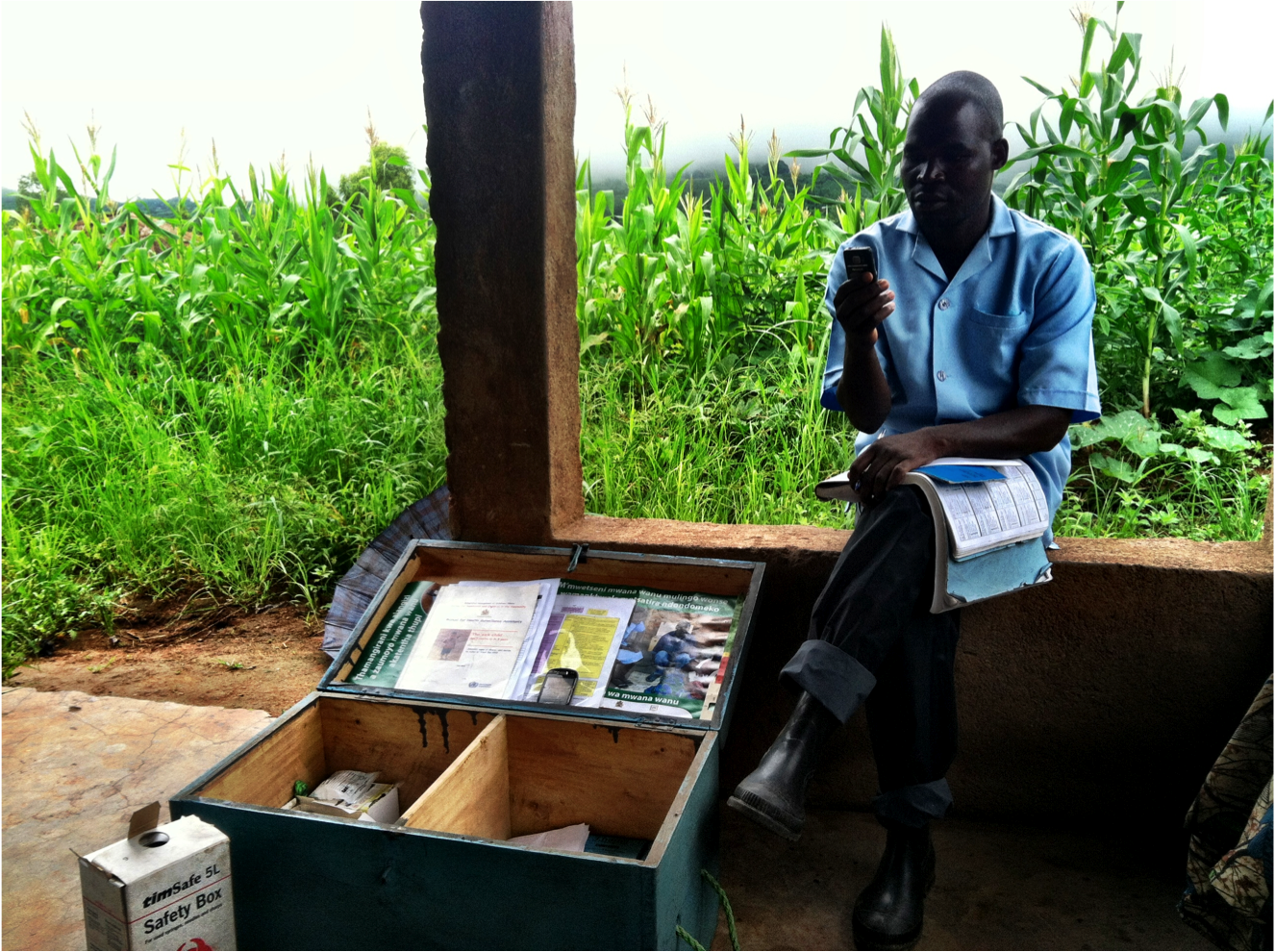This blog is part of a series. Following our brand refresh, we want to invite readers to better understand our approach and work. Read the other pieces:
- Redefining and reconfirming what we do
- The story of Jamii ni Afya: 3 keys for successful sustainable digital health
- Saving lives in Tanzania with the digital tools for tomorrow
- What’s the most important ingredient of a successful a design process?
The Fourth Industrial Revolution is driven by data, yet the potential of data is underutilized in many countries, among them Tanzania. Neema Kwafimi, Data & Program Coordinator in Tanzania, shares how D-tree is working to enhance data use, science and governance in the country to improve health outcomes for all.
Data has real potential to transform lives at an unprecedented scale and this is an opportunity that should be leveraged responsibly. Our work in Tanzania is focused on demonstrating the possibility of digital health innovation and data to transform health systems and make care more accessible to all. For example, through our project Afya-Tek, we are working to build a primary healthcare system that acts together as one, digitally linking communities with their healthcare providers across every point of care. We are also supporting the government and partners with the design and development of a digital community health system at the national level. Because of the nature of our work in the country, there is great potential to use data to better understand community health outcomes with datasets often being fragmented or incomplete in low- and middle- income countries (LMICs).
The potential of data across levels
At the community level in Tanzania, we work with Community Health Workers (CHWs) under Afya-Tek (read more about this in our latest blog here). At D-tree, we take a holistic system approach, meaning that we work directly with CHWs as well as with local, regional and national Ministry of Health to create an environment where digital health efforts can be scaled and sustained.
Simply put, we work with the CHWs by providing them with digital tools so they can deliver quality health care services to the people in their community. The link between the CHWs’ digital tools and other primary health care providers (such as health facilities and drug supply stores) allows for continuity of care.

As patients go through the different care pathways, they are making essential health data accessible to those who need it to make an informed decision about a client’s care journey and health – the CHWs, health facilities and ADDOs – but also at higher levels.
The data collected from our programs in Tanzania have proven to be really impactful at the district levels as decision-makers can make decisions based on evidence rather than more or less informed guesses. An example of this is Happiness, a member of the Community Health Management Team based in the Kibaha District Council. Happiness is using the program data to share insights on how the council is progressing during monthly review meetings at the district level. Another example is Zainab, a district data manager, also from Kibaha, who accessed and shared data-driven evidence about the decline of maternal and neonatal mortality in her district during the years Afya-Tek has been operating, confirming the impact of activities is successful and should continue. The data on young people has proven to be particularly useful as it has provided health managers with insights on the service needs for this demographic, such as the most common symptoms they experience when seeking care from ADDOs. Finally, there is also potential for the data to be used used at the national level to make evidence-based decisions on health policy or resource allocation. We have previously shared our programmatic dashboards with the national government officials at the Ministry of Health and President’s Office Regional Administration and Local Government (PORALG), and both are positive about the details and information available.
“I am really impressed at how your program dashboards are capturing some of the key indicators that we are interested in tracking in the community programs. I think this is a great tool that would give us more visibility on the community activities”
– Staff Member from the Health and Nutrition Directory
Drawing learnings from challenges
Although the opportunities are many, there are also challenges, one being where the data servers are hosted. Servers can be hosted locally or on a cloud – both offering advantages as well disadvantages. We have seen a general trend recently with governments preferring local data hosting as opposed to the typical way systems are currently set up with cloud hosting. This is a challenge not only our organization is facing and an area where we need to look at how we can adjust, but actors also in other countries are exploring ways to effectively and efficiently adjust to this. We are now making sure to plan together with the government, donors, and other partners very onset of a program for closer alignment with the government requirements around data hosting and privacy.
What’s next?
The future of data for health impact in Tanzania is promising and exciting. The Ministry of Health is keen to start the digitalization of the unified community-based health system and we believe there is a lot of potential for a continued fruitful partnership between D-tree and the Ministry in this area.
Our Zanzibar team is currently tackling an important priority – working on creating an understanding of data consent literacy among clients so that we can move away from simple tick boxing to receive clients’ consent for data use, but to really have their consent – or not. In Mainland Tanzania, we are looking forward to learning more about the results and seeing how this can inform the approach we take in our programs.
Learn more about our work in this area here.

